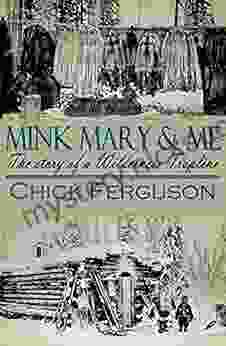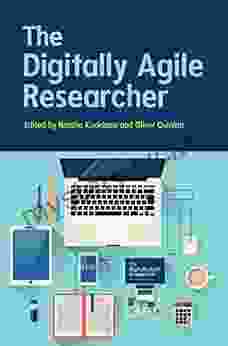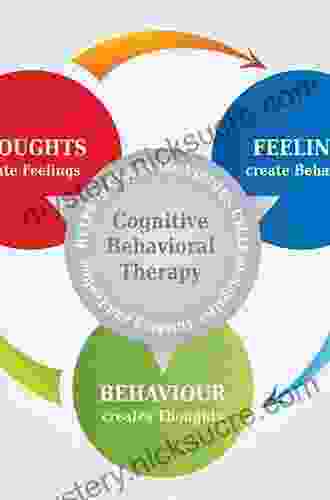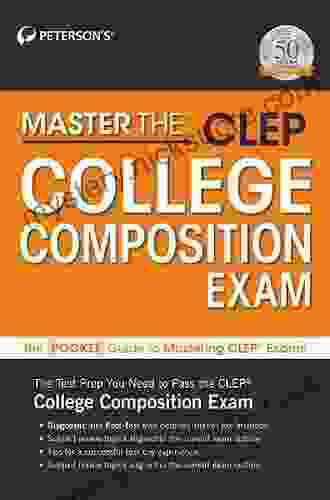Unlocking Happiness: A Comprehensive Guide to Cultivating Well-being for Adults on the Autism Spectrum

Happiness, a state of contentment and fulfillment, can be an elusive pursuit for individuals of all backgrounds, including those on the autism spectrum. While the challenges faced by autistic adults can be unique, it is crucial to recognize that happiness is not an unachievable goal for them. This comprehensive guide explores practical strategies and techniques that empower autistic adults on their journey towards finding and maintaining happiness.
4.4 out of 5
| Language | : | English |
| File size | : | 1453 KB |
| Text-to-Speech | : | Enabled |
| Screen Reader | : | Supported |
| Enhanced typesetting | : | Enabled |
| Word Wise | : | Enabled |
| Print length | : | 194 pages |
Understanding the Challenges
To effectively address the pursuit of happiness for autistic adults, it is essential to understand the challenges they may encounter. These can include:
- Social Difficulties: Autistic individuals may struggle with social interactions, making it harder to form meaningful relationships and gain a sense of belonging.
- Sensory Sensitivities: Overstimulation from noise, light, or crowds can be overwhelming and distressing, limiting opportunities for enjoyment and well-being.
- Communication Barriers: Challenges in understanding and expressing emotions and social cues can hinder communication and lead to misunderstandings.
- Executive Function Impairments: Difficulties with planning, organization, and attention can affect daily routines and make goal-setting and achievement more challenging.
Cultivating a Positive Mindset
A positive mindset is a cornerstone of happiness. For autistic adults, this may involve:
- Self-Acceptance: Embracing and valuing one's unique strengths and differences can foster self-esteem and a sense of purpose.
- Cognitive Reframing: Challenging negative thoughts and replacing them with more positive and realistic perspectives can reduce stress and enhance well-being.
- Mindfulness: Practicing mindfulness techniques, such as meditation or deep breathing exercises, can help manage anxiety and promote a sense of calm.
Building Meaningful Connections
Social connections are vital for happiness. For autistic adults, this may require:
- Joining Support Groups: Connecting with others on the autism spectrum can provide a sense of community and shared experiences.
- Seeking Therapy: Therapists can help develop social skills, improve communication, and address underlying emotional challenges that can hinder relationships.
- Volunteering or Joining Social Groups: Engaging in activities that align with one's interests can provide opportunities to meet like-minded individuals.
Managing Sensory Sensitivities
Creating a comfortable and stress-free environment can alleviate sensory sensitivities and enhance happiness. This may involve:
- Identifying Triggers: Understanding which sensory stimuli are particularly challenging can help autistic adults avoid or manage them effectively.
- Creating a Sensory-Friendly Space: Using noise-canceling headphones, weighted blankets, or calming scents can create a safe and soothing environment.
- Practicing Sensory Integration Therapy: This therapy can help autistic individuals develop strategies for managing sensory input and reducing overstimulation.
Overcoming Communication Barriers
Effective communication is essential for well-being. For autistic adults, this may involve:
- Seeking Communication Support: Assistive communication devices, such as iPads or speech therapy, can help improve verbal and non-verbal communication.
- Utilizing Visual Aids: Using pictures, charts, or written scripts can help convey thoughts and feelings more effectively.
- practicing Social Skills: Role-playing or practicing social interactions in safe environments can enhance communication abilities.
Addressing Executive Function Impairments
Executive function difficulties can present challenges, but there are strategies to overcome them:
- External Supports: Using planners, calendars, or reminders can help manage tasks and stay organized.
- Breaking Down Goals: Dividing large tasks into smaller, manageable steps can make them less overwhelming.
- Seeking Occupational Therapy: Occupational therapists can provide guidance and strategies to improve executive functioning skills.
Embracing Hobbies and Interests
Engaging in activities that bring joy and fulfillment is crucial for happiness. For autistic adults, this may include:
- Exploring Artistic Pursuits: Painting, drawing, music, or writing can provide creative outlets and enhance emotional expression.
- Pursuing Physical Activities: Exercise, sports, or dance can promote physical and mental well-being.
- Collecting or Spending Time in Nature: Interacting with animals, plants, or natural environments can bring a sense of connection and tranquility.
Seeking Professional Support
When needed, professional support can be invaluable in the pursuit of happiness. This may involve:
- Therapy: Therapists can provide personalized guidance, support, and coping mechanisms tailored to the individual's needs.
- Psychiatry: Psychiatrists can prescribe medications, such as antidepressants or anti-anxiety medications, to alleviate symptoms that may hinder happiness.
- Social Skills Training: Social skills training can help autistic adults develop and practice social behaviors in a supportive environment.
Happiness, while a subjective and elusive pursuit, is a worthwhile goal for autistic adults. By understanding the challenges, cultivating a positive mindset, building meaningful connections, managing sensory sensitivities, overcoming communication barriers, addressing executive function impairments, embracing hobbies and interests, and seeking professional support when needed, autistic individuals can create a fulfilling and happy life.
Remember, happiness is a journey, not a destination. There will be challenges along the way, but with perseverance, self-acceptance, and the right support, autistic adults can unlock the door to lasting happiness.
4.4 out of 5
| Language | : | English |
| File size | : | 1453 KB |
| Text-to-Speech | : | Enabled |
| Screen Reader | : | Supported |
| Enhanced typesetting | : | Enabled |
| Word Wise | : | Enabled |
| Print length | : | 194 pages |
Do you want to contribute by writing guest posts on this blog?
Please contact us and send us a resume of previous articles that you have written.
 Fiction
Fiction Non Fiction
Non Fiction Romance
Romance Mystery
Mystery Thriller
Thriller SciFi
SciFi Fantasy
Fantasy Horror
Horror Biography
Biography Selfhelp
Selfhelp Business
Business History
History Classics
Classics Poetry
Poetry Childrens
Childrens Young Adult
Young Adult Educational
Educational Cooking
Cooking Travel
Travel Lifestyle
Lifestyle Spirituality
Spirituality Health
Health Fitness
Fitness Technology
Technology Science
Science Arts
Arts Crafts
Crafts DIY
DIY Gardening
Gardening Petcare
Petcare Mona Bijjani
Mona Bijjani Lynn Butler Kisber
Lynn Butler Kisber Graham Hancock
Graham Hancock Sophie D Coe
Sophie D Coe Jen Howver
Jen Howver Nedu
Nedu David Eagleman
David Eagleman Om Krishna Uprety
Om Krishna Uprety Emt Basic Exam Prep Team
Emt Basic Exam Prep Team Denise May Levenick
Denise May Levenick W D Wetherell
W D Wetherell Dr Monika Chopra
Dr Monika Chopra Matthew Warner Osborn
Matthew Warner Osborn Stella Cottrell
Stella Cottrell Bunmi Laditan
Bunmi Laditan Helen Zuman
Helen Zuman John Flanagan
John Flanagan Ronit Irshai
Ronit Irshai Susan Frederick Gray
Susan Frederick Gray Cecil B Hartley
Cecil B Hartley Mike X Cohen
Mike X Cohen Maria Van Noord
Maria Van Noord Jeff Scheetz
Jeff Scheetz Hecateus Apuliensis
Hecateus Apuliensis Joe Baker
Joe Baker Jennifer L Scott
Jennifer L Scott Ralph Galeano
Ralph Galeano Sheila A Sorrentino
Sheila A Sorrentino Shyima Hall
Shyima Hall Paul Lobo
Paul Lobo Matthew Marchon
Matthew Marchon Douglas P Fry
Douglas P Fry Nigel Cawthorne
Nigel Cawthorne David Cannon
David Cannon Tim Freke
Tim Freke Thomas Deetjen
Thomas Deetjen David Martin
David Martin Steve Barrett
Steve Barrett Marco Wenisch
Marco Wenisch Julietta Suzuki
Julietta Suzuki Destiny S Harris
Destiny S Harris Max Prasac
Max Prasac Jimmy Chin
Jimmy Chin Michael Lear Hynson
Michael Lear Hynson Sarah Prager
Sarah Prager Dave Bosanko
Dave Bosanko Janet Evans
Janet Evans Oliver Sacks
Oliver Sacks Troy Horne
Troy Horne Mcgraw Hill
Mcgraw Hill Henry Malone
Henry Malone Rowena Bennett
Rowena Bennett Oprah Winfrey
Oprah Winfrey Nicholas Tomalin
Nicholas Tomalin Pam Flowers
Pam Flowers Charles Sanger
Charles Sanger Terry Laughlin
Terry Laughlin Eric R Dodge
Eric R Dodge James Goi Jr
James Goi Jr Melanie Anne Phillips
Melanie Anne Phillips Daniel Prince
Daniel Prince Scott Mactavish
Scott Mactavish William Ian Miller
William Ian Miller Celeste Headlee
Celeste Headlee Tom Cunliffe
Tom Cunliffe Doug Cook
Doug Cook Martina Mcbride
Martina Mcbride Della Ata Khoury
Della Ata Khoury Stephen Harrison
Stephen Harrison William M Baum
William M Baum Tey Meadow
Tey Meadow Tricia Levenseller
Tricia Levenseller Dina Nayeri
Dina Nayeri Rebecca Musser
Rebecca Musser Lauren Manoy
Lauren Manoy Stian Christophersen
Stian Christophersen K C Cole
K C Cole John H Cunningham
John H Cunningham Robert Moor
Robert Moor Nawuth Keat
Nawuth Keat Tanya Hackney
Tanya Hackney Sterling Test Prep
Sterling Test Prep Mark Hansen
Mark Hansen Dr Tommy John
Dr Tommy John Robert Larrison
Robert Larrison The Atavist
The Atavist Kendall Rose
Kendall Rose Melissa A Priblo Chapman
Melissa A Priblo Chapman John M Marzluff
John M Marzluff Elisabeth Elliot
Elisabeth Elliot Katharine Mcgee
Katharine Mcgee Cassandra Mack
Cassandra Mack Phil Williams
Phil Williams Nick Tumminello
Nick Tumminello Jessica Howard
Jessica Howard Vincent Chidindu Asogwa
Vincent Chidindu Asogwa Jim Wiese
Jim Wiese Carrie Marie Bratley
Carrie Marie Bratley Carlos I Calle
Carlos I Calle David Savedge
David Savedge C F Crist
C F Crist Dan Flores
Dan Flores Anthony Camera
Anthony Camera Steve Guest
Steve Guest Ron Senyor
Ron Senyor Samantha De Senna Fernandes
Samantha De Senna Fernandes Larry Larsen
Larry Larsen Kat Davis
Kat Davis Tina Schindler
Tina Schindler Ronald T Potter Efron
Ronald T Potter Efron Kevin A Morrison
Kevin A Morrison Heather Jacobson
Heather Jacobson R L Medina
R L Medina Joyceen S Boyle
Joyceen S Boyle Simon Michael Prior
Simon Michael Prior Laurie Notaro
Laurie Notaro Mark Stavish
Mark Stavish Peter Bodo
Peter Bodo Susan Orlean
Susan Orlean Barbara Acello
Barbara Acello Jeff Belanger
Jeff Belanger Mary C Townsend
Mary C Townsend Shea Ernshaw
Shea Ernshaw Elena Paige
Elena Paige Sarah Jacoby
Sarah Jacoby Justin Coulson
Justin Coulson Emily Lowry
Emily Lowry Ransom Riggs
Ransom Riggs Sonia Shah
Sonia Shah Jacob Erez
Jacob Erez Stedman Graham
Stedman Graham Romola Anderson
Romola Anderson Neville Goddard
Neville Goddard John Vince
John Vince Valerie Poore
Valerie Poore Jennifer Rose
Jennifer Rose Lily Raff Mccaulou
Lily Raff Mccaulou Tim Glover
Tim Glover Mary Pagones
Mary Pagones Jason Runkel Sperling
Jason Runkel Sperling Michelle Travis
Michelle Travis Leah Hazard
Leah Hazard Mark Young
Mark Young Dan Romanchik Kb6nu
Dan Romanchik Kb6nu Aaron Reed
Aaron Reed Ashley Eckstein
Ashley Eckstein David Wilber
David Wilber Chris Morton
Chris Morton Leslie A Sams
Leslie A Sams Dvora Meyers
Dvora Meyers Lynette Noni
Lynette Noni Buddy Levy
Buddy Levy Freya Pickard
Freya Pickard Craig Martelle
Craig Martelle William Ellet
William Ellet Nick Littlehales
Nick Littlehales Lucy Cooke
Lucy Cooke Bruce Van Brunt
Bruce Van Brunt Robert D Gibbons
Robert D Gibbons John Jamieson
John Jamieson Gary Mayes
Gary Mayes Hibiki Yamazaki
Hibiki Yamazaki Jim Kempton
Jim Kempton James W Anderson
James W Anderson Niels H Lauersen
Niels H Lauersen E W Barton Wright
E W Barton Wright John Moren
John Moren Ian Leslie
Ian Leslie Sherri L Jackson
Sherri L Jackson Tamara Ferguson
Tamara Ferguson Joseph Correa
Joseph Correa Deirdre V Lovecky
Deirdre V Lovecky E Ink Utilizer
E Ink Utilizer Kelly Rowland
Kelly Rowland William Wood
William Wood Ivy Hope
Ivy Hope John Grehan
John Grehan Healthfit Publishing
Healthfit Publishing Eugenia G Kelman
Eugenia G Kelman Sammy Franco
Sammy Franco Albert Rutherford
Albert Rutherford Hugh Aldersey Williams
Hugh Aldersey Williams Meriwether Lewis
Meriwether Lewis Richard Harding Davis
Richard Harding Davis Creek Stewart
Creek Stewart Bryan Litz
Bryan Litz Valliappa Lakshmanan
Valliappa Lakshmanan Ashley Christensen
Ashley Christensen Scarlett V Clark
Scarlett V Clark Kerry H Cheever
Kerry H Cheever Katie Fallon
Katie Fallon Lsat Unplugged
Lsat Unplugged Dennis Adler
Dennis Adler Lisa Feldman Barrett
Lisa Feldman Barrett Tony E Adams
Tony E Adams Max Lucado
Max Lucado Stephen King
Stephen King Nicola Yoon
Nicola Yoon Pia Nilsson
Pia Nilsson Steven W Dulan
Steven W Dulan Sue Elvis
Sue Elvis Chad Eastham
Chad Eastham Thomas Daniels
Thomas Daniels Arrl Inc
Arrl Inc William L Sullivan
William L Sullivan John J Ratey
John J Ratey Elizabeth Laing Thompson
Elizabeth Laing Thompson Kindle Edition
Kindle Edition Ruthellen Josselson
Ruthellen Josselson Law School Admission Council
Law School Admission Council Peter J D Adamo
Peter J D Adamo Zachery Knowles
Zachery Knowles Lee Alan Dugatkin
Lee Alan Dugatkin Mathew Orton
Mathew Orton Helen Webster
Helen Webster Malika Grayson
Malika Grayson Frederick Jackson Turner
Frederick Jackson Turner Robert Edward Grant
Robert Edward Grant Issai Chozanshi
Issai Chozanshi Roger Marshall
Roger Marshall Sarah Ockwell Smith
Sarah Ockwell Smith Megan Miller
Megan Miller William Rathje
William Rathje Silvia Dunn
Silvia Dunn J R Rain
J R Rain Linda Rosenkrantz
Linda Rosenkrantz Nicola S Dorrington
Nicola S Dorrington Jim Warnock
Jim Warnock Ken Schwaber
Ken Schwaber Elizabeth Anne Wood
Elizabeth Anne Wood Cal Newport
Cal Newport Eric P Lane
Eric P Lane John R Mabry
John R Mabry Fern Schumer Chapman
Fern Schumer Chapman Sara Gaviria
Sara Gaviria Tyler Burt
Tyler Burt Tom Bass
Tom Bass Chris Bonington
Chris Bonington Diane Lindsey Reeves
Diane Lindsey Reeves Elaine Tyler May
Elaine Tyler May Lottie Bildirici
Lottie Bildirici Scott Hartshorn
Scott Hartshorn Paige Powers
Paige Powers Rob Pate
Rob Pate Paul Murdin
Paul Murdin C J Archer
C J Archer Ian Tuhovsky
Ian Tuhovsky Meg Cabot
Meg Cabot Heather Balogh Rochfort
Heather Balogh Rochfort Graham Norton
Graham Norton Michael Mewshaw
Michael Mewshaw Marla Taviano
Marla Taviano Gary Lewis
Gary Lewis Emily Writes
Emily Writes Susan Garcia
Susan Garcia L W Jacobs
L W Jacobs Rita Golden Gelman
Rita Golden Gelman Marc Van Den Bergh
Marc Van Den Bergh Cameron Mcwhirter
Cameron Mcwhirter Huberta Wiertsema
Huberta Wiertsema Ned Feehally
Ned Feehally Collins Easy Learning
Collins Easy Learning Scott Mcmillion
Scott Mcmillion Sarah Baker
Sarah Baker Joanne V Hickey
Joanne V Hickey Tim S Grover
Tim S Grover Rick Trickett
Rick Trickett Elmer Keith
Elmer Keith Matt Mullenix
Matt Mullenix Sheri Morehouse
Sheri Morehouse Ron Rapoport
Ron Rapoport Scott Cawthon
Scott Cawthon Tibor Rutar
Tibor Rutar Narain Moorjani
Narain Moorjani Trevelyan
Trevelyan Shawna Richer
Shawna Richer Bryce Carlson
Bryce Carlson Michael D Alessio
Michael D Alessio Shaunti Feldhahn
Shaunti Feldhahn Pamela Weintraub
Pamela Weintraub Martina D Antiochia
Martina D Antiochia Jeffrey L Kohanek
Jeffrey L Kohanek Kathy Woods
Kathy Woods Sandra Niche
Sandra Niche Pedro Urvi
Pedro Urvi Nick Gamis
Nick Gamis Keith Brewer
Keith Brewer Richard Henry Dana
Richard Henry Dana John Burroughs
John Burroughs Luc Mehl
Luc Mehl Natasha Ngan
Natasha Ngan Simon A Rego
Simon A Rego Winky Lewis
Winky Lewis Lois Lowry
Lois Lowry Konstantinos Mylonas
Konstantinos Mylonas Max Lugavere
Max Lugavere J R Harris
J R Harris Suzanne Young
Suzanne Young Bruce Watt
Bruce Watt Tyler Trent
Tyler Trent Greg W Prince
Greg W Prince Christine Mari Inzer
Christine Mari Inzer Vivian Foster
Vivian Foster Olivier Doleuze
Olivier Doleuze J D Williams
J D Williams Erin Macy
Erin Macy Philippe Karl
Philippe Karl Charu C Aggarwal
Charu C Aggarwal Julie Golob
Julie Golob Wyatt Mcspadden
Wyatt Mcspadden Michael Tan
Michael Tan Joanne Kimes
Joanne Kimes Donna R Causey
Donna R Causey Jess J James
Jess J James Rand Cardwell
Rand Cardwell Jessica Holsman
Jessica Holsman Roger J Davies
Roger J Davies Michael Blastland
Michael Blastland Thomas Carothers
Thomas Carothers Michael Gurian
Michael Gurian Steven Kerry Brown
Steven Kerry Brown Ivan Gridin
Ivan Gridin Charles Staley
Charles Staley Leon Speroff
Leon Speroff M E Brines
M E Brines Brandy Colbert
Brandy Colbert Trevor Thomas
Trevor Thomas Ira K Wolf
Ira K Wolf Francis Glebas
Francis Glebas Cornelia Pelzer Elwood
Cornelia Pelzer Elwood Byron L Reeder
Byron L Reeder John Kretschmer
John Kretschmer Lee Jackson
Lee Jackson Mark Stanton
Mark Stanton Charles Salzberg
Charles Salzberg Clement Salvadori
Clement Salvadori Michael A Tompkins
Michael A Tompkins Db King
Db King Richard Barrett
Richard Barrett C M Carney
C M Carney Marcia Scheiner
Marcia Scheiner Carrie Hope Fletcher
Carrie Hope Fletcher Maurice J Thompson
Maurice J Thompson S M Kingdom
S M Kingdom Douglas Preston
Douglas Preston Jasmine Shao
Jasmine Shao Fmg Publications Special Edition
Fmg Publications Special Edition Orangepen Publications
Orangepen Publications Philip Purser Hallard
Philip Purser Hallard Elizabeth May
Elizabeth May Don S Lemons
Don S Lemons Caroline Manta
Caroline Manta Pat Rigsby
Pat Rigsby Victoria Honeybourne
Victoria Honeybourne Don Allen Jr
Don Allen Jr Sallyann Beresford
Sallyann Beresford Dave Rearick
Dave Rearick Michael Chatfield
Michael Chatfield Jack Canfield
Jack Canfield Kevin Panetta
Kevin Panetta Nikki Carroll
Nikki Carroll Ivar Dedekam
Ivar Dedekam Bruce Maxwell
Bruce Maxwell Jennifer Appel
Jennifer Appel Dianne Maroney
Dianne Maroney Marisa Peer
Marisa Peer Caitlyn Dare
Caitlyn Dare James Beard
James Beard Jill Angie
Jill Angie Fiona Beddall
Fiona Beddall Matt Baglio
Matt Baglio Robert A Cutietta
Robert A Cutietta Maha Alkurdi
Maha Alkurdi Nicolas Bergeron
Nicolas Bergeron Matt Racine
Matt Racine Kevin Howell
Kevin Howell Leslie R Schover
Leslie R Schover Bruce W Harris
Bruce W Harris R Scott Thornton
R Scott Thornton Erin Beaty
Erin Beaty Norman Thelwell
Norman Thelwell Veronica Roth
Veronica Roth Caleb J Tzilkowski
Caleb J Tzilkowski Donna Goldberg
Donna Goldberg Matt Price
Matt Price Katherine D Kinzler
Katherine D Kinzler Kruti Joshi
Kruti Joshi Shmuel Goldberg
Shmuel Goldberg Lingo Mastery
Lingo Mastery Kyra Phillips
Kyra Phillips George Daniel
George Daniel David Nathan Fuller
David Nathan Fuller Meghan Daum
Meghan Daum Richard Drake
Richard Drake Stacey Rourke
Stacey Rourke Dory Willer
Dory Willer Richard Bullivant
Richard Bullivant Jesse Romero
Jesse Romero John H Falk
John H Falk Melissa Mullamphy
Melissa Mullamphy Theodora Papatheodorou
Theodora Papatheodorou Maren Stoffels
Maren Stoffels Lina K Lapina
Lina K Lapina Richard W Voelz
Richard W Voelz Joseph Moss
Joseph Moss Lily Field
Lily Field Winslow Tudor
Winslow Tudor Joel Best
Joel Best Robert Walker
Robert Walker Jonathan T Gilliam
Jonathan T Gilliam Warwick Deeping
Warwick Deeping Sarah Berman
Sarah Berman Upton Sinclair
Upton Sinclair Kevin Houston
Kevin Houston Skip Lockwood
Skip Lockwood Jared Diamond
Jared Diamond Edward Humes
Edward Humes Jim Al Khalili
Jim Al Khalili Dick Hannula
Dick Hannula Martin Davies
Martin Davies Emma Warren
Emma Warren Dian Olson Belanger
Dian Olson Belanger Craig Callender
Craig Callender Sylvia Williams Dabney
Sylvia Williams Dabney Ken Sande
Ken Sande Julia Ann Clayton
Julia Ann Clayton David Tanis
David Tanis Dorothy Canfield Fisher
Dorothy Canfield Fisher Sam Priestley
Sam Priestley Marc Bona
Marc Bona Martha Finley
Martha Finley Ed Housewright
Ed Housewright Dounya Awada
Dounya Awada Sophie Messager
Sophie Messager Maxine A Goldman
Maxine A Goldman Wayne Coffey
Wayne Coffey Jim West
Jim West Kathleen Flinn
Kathleen Flinn Phil Bourque
Phil Bourque Thomas Achatz
Thomas Achatz Vladimir Lossky
Vladimir Lossky Gregory A Kompes
Gregory A Kompes Judith Merkle Riley
Judith Merkle Riley Paul Rabinow
Paul Rabinow James Miller
James Miller Carmen Davenport
Carmen Davenport Chris Pountney
Chris Pountney Bruce Sutherland
Bruce Sutherland Carol Inskipp
Carol Inskipp Frank Muir
Frank Muir Veronica Eden
Veronica Eden J Maarten Troost
J Maarten Troost Robert Garland
Robert Garland Carole Bouchard
Carole Bouchard Cathy Glass
Cathy Glass Albert Jeremiah Beveridge
Albert Jeremiah Beveridge Jack Disbrow Gunther
Jack Disbrow Gunther Elizabeth Dupart
Elizabeth Dupart Kaplan Test Prep
Kaplan Test Prep Kacen Callender
Kacen Callender Karen J Rooney
Karen J Rooney Howard E Mccurdy
Howard E Mccurdy Guy Grieve
Guy Grieve Natasha Daniels
Natasha Daniels Jim Supica
Jim Supica Paul A Offit
Paul A Offit Lisa Hopp
Lisa Hopp Darcy Lever
Darcy Lever Shelby Hailstone Law
Shelby Hailstone Law Lianna Marie
Lianna Marie Declan Lyons
Declan Lyons Peterson S
Peterson S Wilhelm Reich
Wilhelm Reich Mo Gawdat
Mo Gawdat Leah Zani
Leah Zani Lew Freedman
Lew Freedman Earl G Williams
Earl G Williams Duncan Steel
Duncan Steel Jamie Marich
Jamie Marich Richard C Francis
Richard C Francis Lewis Kirkham
Lewis Kirkham Jane Brocket
Jane Brocket C S Lewis
C S Lewis
Light bulbAdvertise smarter! Our strategic ad space ensures maximum exposure. Reserve your spot today!

 Jeff FosterMink Mary and Me: An Oasis of Indulgence and Exquisite Beauty in the Heart of...
Jeff FosterMink Mary and Me: An Oasis of Indulgence and Exquisite Beauty in the Heart of... Bob CooperFollow ·18k
Bob CooperFollow ·18k Connor MitchellFollow ·5.6k
Connor MitchellFollow ·5.6k José SaramagoFollow ·11.1k
José SaramagoFollow ·11.1k Winston HayesFollow ·14.5k
Winston HayesFollow ·14.5k Chase SimmonsFollow ·12k
Chase SimmonsFollow ·12k Steven HayesFollow ·17.5k
Steven HayesFollow ·17.5k Ira CoxFollow ·3.2k
Ira CoxFollow ·3.2k Joshua ReedFollow ·9.6k
Joshua ReedFollow ·9.6k

 Henry David Thoreau
Henry David ThoreauHow To Bake In Unique Way: Unleash Your Culinary...
Baking is an art form that transcends the...

 F. Scott Fitzgerald
F. Scott FitzgeraldAcademic Magic: Unveil the Secrets of The Last Magus
Delve into a Realm of...

 John Green
John GreenThe Digitally Agile Researcher in UK Higher Education:...
In the rapidly...

 George Orwell
George OrwellZinc: Sources And Significance To Human Health
Zinc, an essential trace mineral, plays a...

 Mario Simmons
Mario SimmonsToo Scared to Tell: A Harrowing and Thought-Provoking...
In the realm...
4.4 out of 5
| Language | : | English |
| File size | : | 1453 KB |
| Text-to-Speech | : | Enabled |
| Screen Reader | : | Supported |
| Enhanced typesetting | : | Enabled |
| Word Wise | : | Enabled |
| Print length | : | 194 pages |












